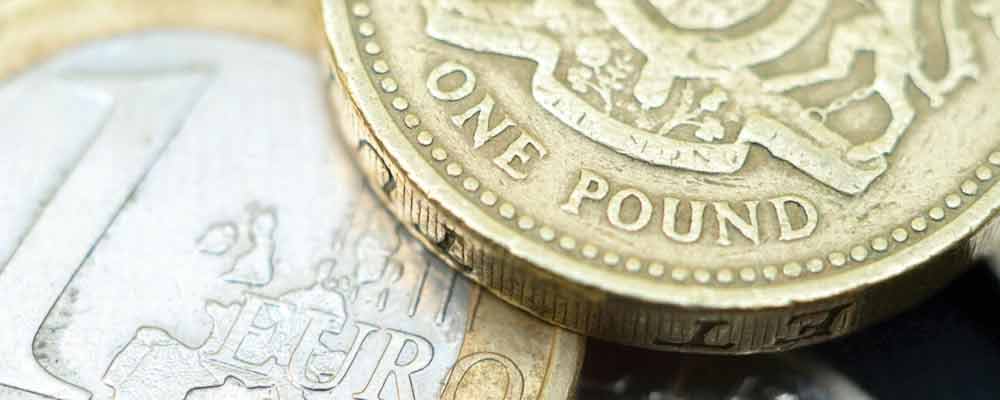- EUR GBP Rises as UK’s EU Ambassador Resigns – Resignation causes greater ‘Brexit’ uncertainty.
- Eurozone CPI Impresses – Euro climbs as Eurozone inflation rises faster than expected.
- Pound Buoyed by Data – PMI report unexpectedly jumps in construction sector.
The EUR GBP exchange rate rallied yesterday following the resignation of Sir Ivan Rogers, the UK’s ambassador to the EU.
Euro Pound (EUR GBP) Jumps Following Resignation of UK Ambassador
The Euro Pound (EUR GBP) exchange rate rallied from a two-week low yesterday as market concerns over ‘Brexit’ grew following the sudden resignation of the UK’s EU ambassador.
Sir Ivan announced he would be leaving his post late on Tuesday, shocking investors and weighing on the Pound as it was expected that his years of diplomatic experience would help to guide the UK government through ‘Brexit’ negotiations with the EU.
In quitting the ambassador left a note to his staff warning that the ‘government will only achieve the best for the country if it harnesses the best experience we have’ and urged his colleagues to avoid ‘muddled thinking and… speak truth to power’, in what appears to be a criticism of the UK government’s apparent lack of interest in listening to advice concerning the EU.
This comes shortly after he warned that it could take up to ten years for a new trade agreement to ratify, which was also dismissed by the government as it reiterated that a deal could be formed within the two years of ‘Brexit’ negotiations.
Eurozone Inflation Impresses, EUR Supported
The Euro has also been bolstered by the latest Eurozone Consumer Price Index, which saw Eurozone inflation rise from 0.6% to 1.1% in December, outpacing expectations that it would only reach 1.0%.
The composite CPI was bolstered by Germany’s CPI report yesterday, which showed that German inflation more than doubled from 0.8% to 1.7% in December.
The acceleration in the Eurozone’s CPI will help to please investors as it brings inflation closer to the European Central Bank’s (ECB) target of 2.0% and increases the likelihood that the central bank will begin to taper its quantitative easing programme earlier.
Pound (GBP) Strengthened by Construction PMI
The Pound was bolstered this morning by a better-than-expected Construction PMI as Markit reported a rise in from 52.8 to 54.2 in November, significantly improving on forecasts that it would slide to 52.6.
However, there are concerns that the construction sector could struggle in 2017 as the devaluation of the Pound causes the cost of importing raw materials to rise, placing pressure on businesses. As Tim Moore, senior economist at IHS Markit explained;
‘UK construction companies noted that the weaker sterling exchange rate had resulted in higher costs for a wide range of imported materials, while some also reported that forward purchasing of inputs had led to depleted stocks among suppliers.’
EUR USD Exchange Rate Forecast: Eurozone Retail PMI Due Tomorrow
The EUR GBP exchange rate may rally further tomorrow following the release of the Eurozone’s latest retail PMI, which is expected to have risen from 48.6 to 50.5 in December.
The Pound may also strengthen on Thursday following the release of the UK’s Services PMI. Although currently predicted to slide from 55.2 to 54.7, should it see a similar jump to the manufacturing and construction PMIs, it is likely to cause Sterling to advance.
Meanwhile, the approach of ‘Brexit’ is likely to drag on the Pound for the foreseeable future as Theresa May gears up to trigger Article 50 and begin negotiating the UK’s departure from the EU in March.
Current Interbank Exchange Rates
At the time of writing the EUR GBP exchange rate was trending around 0.85 and the GBP EUR exchange rate was trending around 1.17.



